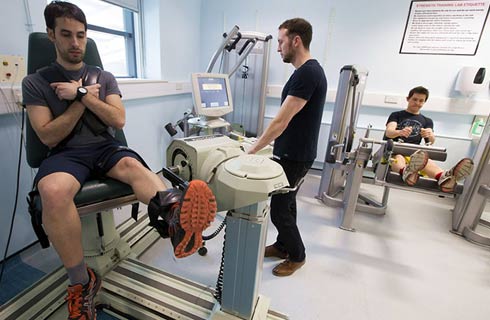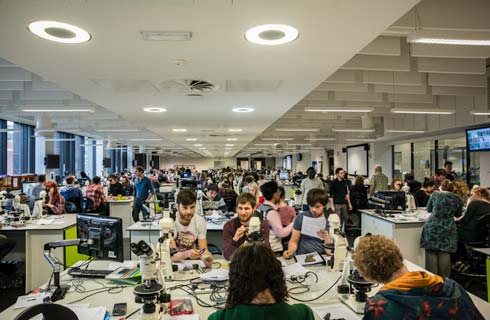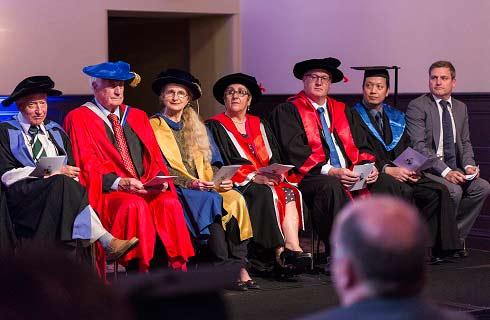Doctor of Philosophy in Pharmaceutical and Biomedical Sciences

佐治亚大学

QS排名:
国际学生入学条件
Key factors considered for admission to the ILS graduate program are: prior research experience and productivity; evidence of work ethic and commitment to biomedical research; evidence of appropriate educational background; grade point average; English language exam scores (for international applicants); references (particularly from laboratory supervisors); research interests of available faculty mentors; and other requirements of the UGA Graduate School.
Minimum TOEFL score requirement: overall score of 80 with at least 20 on speaking and writing
Minimum IELTS score requirement: overall band-width of 6.5, with no single band (score) below 6.0
展开
IDP—雅思考试联合主办方

雅思考试总分
6.5
了解更多
- 雅思总分:6.5
- 托福网考总分:80
- 托福笔试总分:550
- 其他语言考试:Minimum Duolingo score requirement: overall score of 105
CRICOS代码:
申请截止日期:请 与IDP联系 以获取详细信息。
课程简介
Graduates from the pharmaceutical and biomedical sciences graduate program are in demand throughout the United States and the world in a wide variety of challenging biomedical careers. The majority of our graduates are employed in the pharmaceutical industry with major multi-national pharmaceutical companies as well as smaller regional companies. Many of our students find opportunities in the rapidly expanding biotechnology industry where they attempt to bring the newest molecular biological techniques into modern therapeutics. In addition to industrial opportunities, many of our graduates find exciting careers with government labs and regulatory agencies. We also have many faculty serving at some of the premiere research and teaching universities in the world.<br><br>The Department of Pharmaceutical and Biomedical Sciences at The University of Georgia offers M.S. and Ph.D. degree programs in all major disciplines of the pharmaceutical sciences, including pharmaceutics, pharmacology, toxicology, medicinal chemistry and other related biomedical sciences. Faculty within the department conduct highly interdisciplinary research including the design, synthesis and discovery of novel antiviral, antibacterial and anticancer agents, biological mechanisms of action of therapeutic agents, pharmacokinetics, signal transduction and cancer, neuroprotective agents, bioanalytical chemistry, nutraceuticals, nanotechnology and drug delivery, computational chemistry, genomic analysis and viral genes and injury prevention resulting from weapons of mass destruction and bioterrorism.
展开
相关申请

预科

奖学金

实习机会

在校学习

跨境学习

校园授课-线上开始

在线/远程学习
学校排名
世界排名
401
数据源:泰晤士高等教育世界大学排名

关于佐治亚大学

乔治亚大学历史悠久,校园内最为古老的学建立于1801年,在大学部课程方面,提供了173个不同领域中19种的学士学位,而在研究所课程方面,提供了130个不同领域中25种的学士学位,丰富而多样的课程内容,让许多海内外的学生都将乔治亚大学列为主要选择之一。乔治亚大学开设79种学位项目,每年招收26000多名本科生和9000多名研究生。该校在《2011美国新闻与世界报道》的全美公立研究型大学排第18位, 其传播学院与公共行政学院更为全美最顶尖的五所学校之一, 并为美国电视花生人奖(peabody Awards)的主办大学, 被誉为美国南方三所公立常春藤大学之一。乔治亚大学拥有不少历史建筑群与美国南方特色建筑, 大部分皆座落于南与北校园, 除了传统历史建筑外, 最近十几年乔治亚大学不断的扩建硬件设备, 包括新的学生活动中心, 学生学习中心,大学艺术博物馆及演奏厅和全新的新学生宿舍。乔治亚大学位于佐治亚州东北部的雅典城(Athens),距州府亚特兰大90公里,是全美国最大的大学城之一。乔治亚州农业很发达,旅游业也很盛, 每年由州外之地来此游乐的人, 花费多至四亿美元。雅典城附近为幅员辽阔的森林,十分潮湿。这里气候变化明显,夏天为潮湿的天气,平均温度摄氏20度-32度。冬天气候干冷,会到摄氏零度左右。雅典城每年有许多艺术文化的盛宴,生活便利,课业之余可以参观城内的博物馆、艺术馆,或是从事户外的休闲游憩活动。





































